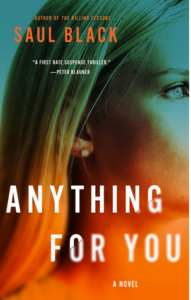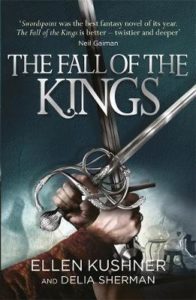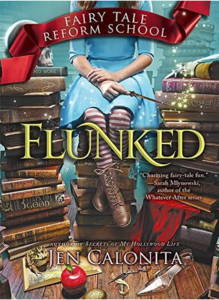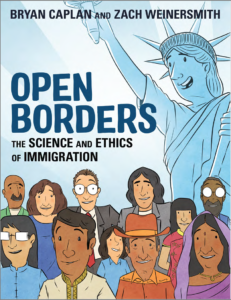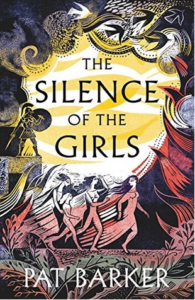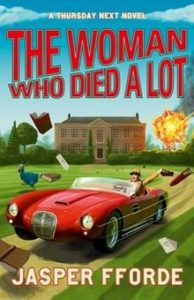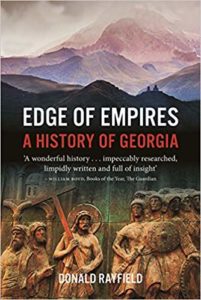There’s an almost Hardy-esque quality to this book, from its impoverished protagonist’s longing for higher education to the frank discussions of sexual transactionalism to the desperately whipsawing balancing acts between respectability and happiness. Of course, since this is a romance novel written in the modern era, our main protagonists do find their ways towards a happily ever after, but the narrative along the way treads on topics rarely grappled with in the oeuvre. Reputation is a really big deal in Bringing Down The Duke, and I honestly can’t remember reading another romance novel where the renunciation of such comes in the form it does here. I’m probably being terribly vague so first, some details:
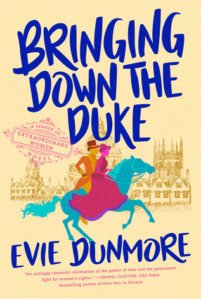 Annabelle Archer is the spinster daughter of a country curate who has been living as the helpmeet of her cousin’s large family since her father’s death. Over-educated but with no inheritance, her prospects seem bleak, till she wins a scholarship to attend Oxford University as one of its first women students. The catch is that she must participate in the suffrage movement that is sponsoring her, handing out pamphlets, buttonholing politicians and demonstrating for the cause.
Annabelle Archer is the spinster daughter of a country curate who has been living as the helpmeet of her cousin’s large family since her father’s death. Over-educated but with no inheritance, her prospects seem bleak, till she wins a scholarship to attend Oxford University as one of its first women students. The catch is that she must participate in the suffrage movement that is sponsoring her, handing out pamphlets, buttonholing politicians and demonstrating for the cause.
Sebastian Devereux, Duke of Montgomery, has just been charged by Queen Victoria to steer her beloved but foundering Conservative Party to electoral victory. The last thing he needs is to be accosted by a beautiful, green-eyed bluestocking outside Parliament, especially when he’s also busy worrying about his younger brother, Peregrin, who seems determined to fritter away his life in the same way their father had. So when Peregrin invites Annabelle and several of her suffragist friends to a house party at Claremont, their estate, Sebastian wants nothing to do with them. And Annabelle, even though she’s been tasked with attempting to persuade Sebastian of the merits of her cause, soon finds herself at odds with a man she discovers she cannot manage in the way she does most of the men in her life.
As the two (inevitably) butt heads and fall in love, Evie Dunmore throws up such a series of unexpected but still heartrendingly realistic obstacles that I was actually afraid they might not make it to their HEA! Annabelle’s desperation to maintain her ambitions without forfeiting her social standing or, worse, placing herself in a legally precarious position is underscored by the backdrop of England’s 19th century women’s rights movement. A hundred and forty years on, the social and legal barriers to a prominent member of royalty marrying an almost literal nobody have broken down considerably, and women aren’t consigned to whichever role the most powerful men in their life decree. But back in the day, women were almost entirely at the mercy of their menfolk, and Ms Dunmore depicts this fraught era, where women were beginning to demand to be seen and treated as independent human beings, with insight and skill. I didn’t expect the depth or meaningfulness of the plot twists but I greatly enjoyed them, even as my heart suffered for the pain Annabelle endured.
One thing I did not enjoy suffering through was the occasional but extremely egregious typo. The worst one I can recall is the use of “withered” for weathered stone, and quite early on in the book too (I honestly try not to dwell on typos but sometimes they are so bad and become so numerous that I cannot let them go.) I certainly hope the romance department is getting its fair share of editorial staff, because that should have been caught very early in the publishing process. That aside, a terrific historical romance that doesn’t paper over how much life used to suck for women in Victorian England. I shall definitely keep an eye out for more in the series!

